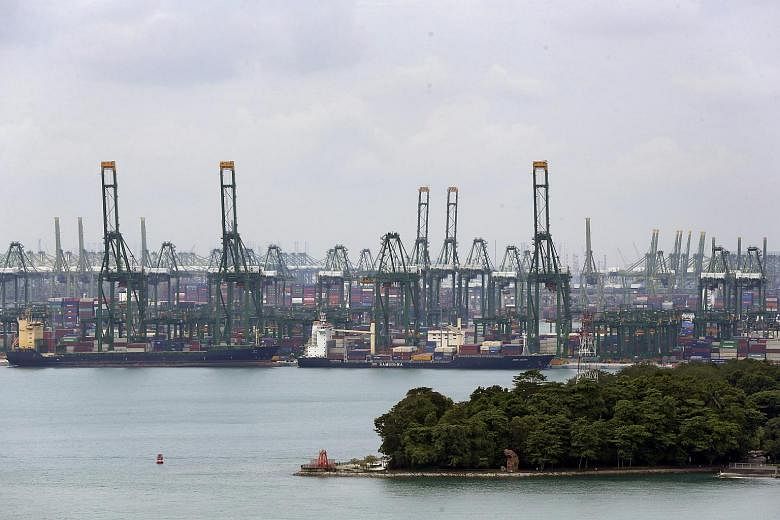SINGAPORE - Port operator PSA Singapore has inked a 21-year deal with the Sunseap Group to roll out solar power solutions across its terminal facilities in Singapore.
The solar power purchase agreement will enhance the eco-friendliness of the container port and ancillary buildings in PSA's Singapore facilities, the two companies said in a joint statement on Wednesday (Jan 17).
Under the contract, Sunseap - one of the largest solar players here - will build and install a 4MW peak solar system across five sites in PSA's Singapore terminals, including terminal buildings, gates, maintenance base and workers' dormitories at the Pasir Panjang Terminal.
Sunseap will install and maintain the solar photovoltaic system as well as offer a competitive electricity tariff rate that will allow PSA to reduce its carbon footprint, in line with PSA's sustainability goals, said the joint statement.
The solar photovoltaic system is expected to be operational by the end of October.
Once completed, it will generate about 4.3 gigawatt hours of energy per year and offset a portion of Pasir Panjang Terminal's energy needs. It will also help PSA offset 1,689 tonnes of carbon dioxide emissions annually.
Sunseap Group co-founder and director Frank Phuan said the increasing number of companies moving to adopt renewable energy options is encouraging.
Mr Ong Kim Pong, regional chief executive for South-east Asia at PSA International, added that implementing solar power solutions on a terminal-wide scale will help PSA to significantly reduce its carbon footprint, and boost its commitment to renewable energy for years to come.
"In tandem, we are continuing with the electrification of our port equipment including yard cranes and automated guided vehicles, among our other green initiatives," said Mr Ong.
Singapore is stepping up efforts to encourage businesses to reduce greenhouse emissions and consider clean energy options.
In 2016, the government announced that a carbon tax would be imposed in 2019 on power producers and large carbon emitters based on each tonne of carbon they release.


